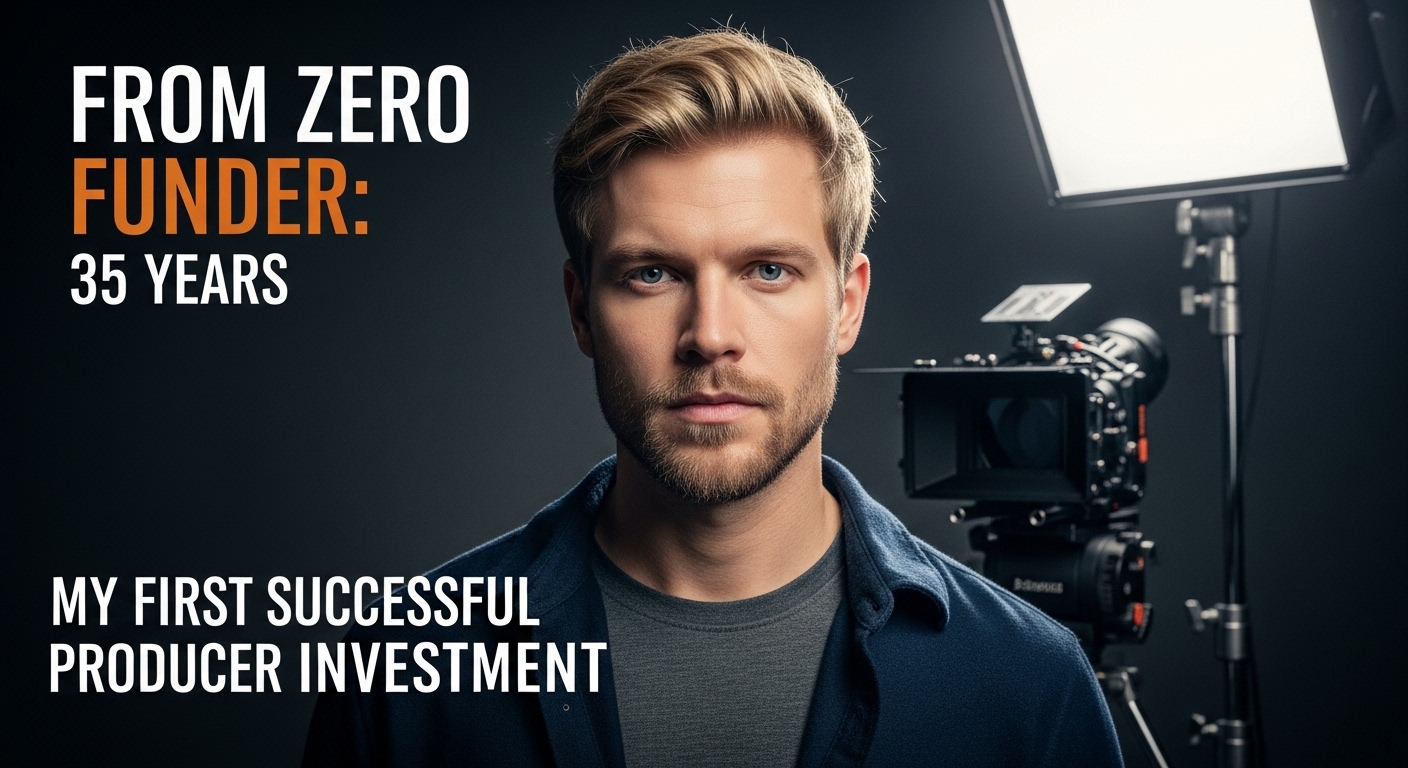As I embarked on my journey into the world of video production, I quickly discovered that the path is often riddled with challenges. From mastering technical skills to finding a unique voice, every aspiring producer faces hurdles that can feel overwhelming.
With countless decisions to make and a rapidly evolving industry, it’s easy to feel lost or discouraged. However, reflecting on my experiences, I realized that navigating these complexities is not just about technical prowess—it’s also about building connections and learning from others.
One crucial lesson I wish I had known before diving in was the immense value of networking. This isn’t just a buzzword; it’s the key that can unlock a treasure trove of opportunities for collaboration, mentorship, and growth.
By sharing insights and experiences with fellow creators, we can foster a supportive community that nurtures talent and creativity. In the following sections, I’ll share practical tips and strategies that can help you overcome the initial obstacles and set you on a path toward success in video production.
Whether you’re just starting out or looking to refine your skills, let’s explore how connection and collaboration can elevate your work to new heights.
The Power of Networking.
Networking is more than just exchanging business cards; it’s about fostering relationships that can lead to meaningful collaboration opportunities. In my early days as a video producer, I learned that attending local meetups or online forums often resulted in partnerships that transformed my projects.
By connecting with fellow creators, I discovered how different perspectives can enhance storytelling and technical skills. Each conversation opened doors to new ideas and potential collaborations that I would have never considered otherwise.
Building a supportive community within the industry is crucial for personal growth and success. When I first stepped into the world of video production, I found that surrounding myself with passionate individuals not only inspired me but also provided a safety net during challenging times.
Whether through social media groups or industry events, these connections can lead to valuable insights and encouragement. When we share our experiences and knowledge, we create an environment where everyone benefits, helping each other navigate the complexities of the field.
One of the most rewarding aspects of networking is the unexpected paths it can carve out for your career. For instance, I once connected with a sound designer at a film festival who later collaborated with me on a documentary project.
This partnership not only elevated the quality of my work but also expanded both our portfolios and networks. Embracing these opportunities can be transformative; what’s one tip you wish you had known before starting in video production? The answer often lies in who you know and the relationships you build along the way.
Ultimately, effective networking nurtures an ecosystem where creativity thrives. By actively seeking connections and engaging in collaborative projects, you position yourself within a community that fosters innovation. So don’t underestimate the power of networking—it’s a vital tool that can propel your video production journey to new heights.
Finding Mentorship.
Having a mentor in video production can be a game-changer for aspiring filmmakers and content creators. A mentor not only provides guidance but also shares invaluable insights from their own experiences, helping you navigate the often-challenging landscape of the industry.
I remember how my mentor helped me refine my storytelling techniques and provided constructive feedback that pushed my projects to new heights. Their wisdom not only saved me time but also inspired me to explore creative avenues I had never considered before.
To find the right mentor, start by identifying individuals whose work resonates with you. Attend industry events, workshops, or film festivals where you can observe potential mentors in action. Engaging with their work on social media is another excellent way to show your genuine interest.
When approaching someone, be authentic and concise; express what aspects of their career inspire you and how you believe their guidance could help you grow in your own journey. Remember, it’s about building a relationship, not just seeking advice.
Once you’ve established a connection, don’t hesitate to ask specific questions or request feedback on your projects. Many seasoned professionals appreciate when newcomers are eager to learn and seek constructive criticism.
This approach fosters a two-way relationship where both parties benefit; you gain knowledge while they enjoy mentoring a passionate individual who reminds them of their early days in the industry.
Lastly, don’t overlook the power of informal mentorship. Sometimes, peers or even those slightly ahead of you in their careers can offer valuable insights and support. Embrace every opportunity to learn from others, whether through formal channels or casual conversations.
Remember, mentorship can take many forms, and staying open to different perspectives will enrich your journey in video production.
Collaborating with Peers.
Collaboration is an essential aspect of video production that can dramatically enhance both skills and creativity. When I first started, I discovered that working with others opens doors to diverse perspectives and fresh ideas.
It’s incredible how sharing a vision with fellow creators can lead to unexpected breakthroughs in storytelling and technical execution. This experience taught me that the learning curve often shortens when you engage with peers who bring their unique strengths to the table.
One standout example of successful collaboration in video production is the partnership between filmmakers Joe and Anthony Russo, known for their work on Marvel’s “Avengers” series. Their ability to combine different talents within their team led to some of the most iconic moments in cinema.
This demonstrates that when you pool your talents and resources, you not only create something greater than the sum of its parts but also cultivate an environment ripe for innovation and artistic growth.
Moreover, collaborating can help you hone your skills in areas where you might feel less confident. For instance, if you excel in cinematography but struggle with editing, teaming up with a talented editor can provide invaluable learning opportunities while creating stunning visuals together.
This reciprocal relationship fosters a sense of community and support, making the journey through video production far more enjoyable and enriching.
In my experience, seeking out collaboration opportunities can be as simple as joining local filmmaker meetups or online forums dedicated to video production. Engaging with others who share your passion not only enhances your skillset but also builds lasting relationships that can benefit your career for years to come.
So, what’s one tip I wish I had known before starting in video production? Embrace collaboration wholeheartedly—it’s a powerful catalyst for growth and success.
Leveraging Social Media.
In today’s digital age, social media platforms have become invaluable tools for aspiring video producers looking to connect with other creators and build industry connections.
I’ve found that platforms like Instagram, Twitter, and LinkedIn not only serve as creative showcases but also as networking hubs where ideas and collaborations flourish. By sharing snippets of your work or behind-the-scenes footage, you can attract like-minded individuals who resonate with your style and vision.
When it comes to showcasing your work online, consistency is key. Regularly posting high-quality content keeps your audience engaged and helps establish your brand identity.
For instance, using relevant hashtags can significantly increase the visibility of your posts, allowing potential collaborators and mentors to discover your work. Engaging with other creators through comments and direct messages can foster relationships that lead to fruitful partnerships down the line.
Moreover, actively participating in online discussions and groups related to video production can open doors to new opportunities. I’ve seen how joining Facebook groups or Reddit communities dedicated to filmmaking allows emerging producers to share their struggles and successes while receiving valuable feedback from peers.
These interactions often lead to collaborative projects that enhance your skill set and broaden your network.
Ultimately, leveraging social media effectively means being authentic and approachable. Sharing not just your successes but also your learning experiences can resonate with others in the industry.
By cultivating an online presence that encourages interaction and connection, you’ll find that the support of a vibrant community can propel your career forward in ways you may not have imagined.
Attending Industry Events.
Participating in film festivals and workshops is one of the most effective ways to immerse yourself in the video production world. These events not only showcase a wealth of creative talent but also provide a unique opportunity to connect with industry professionals who share your passion.
I remember attending my first local film festival, where I was amazed by the sheer variety of storytelling techniques on display. It was a vibrant environment filled with aspiring filmmakers, seasoned experts, and enthusiastic audiences all eager to engage in discussions about film.
To maximize the benefits of these networking opportunities, preparation is key. Researching the speakers, panelists, and fellow attendees before the event can help you identify potential creative partnerships.
Approach conversations with genuine curiosity, and don’t shy away from sharing your own experiences and projects. I once struck up a conversation with a fellow attendee about our favorite documentaries, which led to an unexpected collaboration on a short film project. These organic interactions often lead to exciting opportunities that you may not have anticipated.
It’s also essential to actively participate in workshops offered at these events. They’re designed to enhance your skills and knowledge in various aspects of video production, from cinematography to editing techniques.
Engaging fully in these sessions can provide invaluable insights and practical advice that you can apply to your own work. The hands-on experience gained through workshops has been instrumental in shaping my creative approach, turning theoretical knowledge into tangible skills.
Finally, don’t forget to follow up after the event. Sending a quick email or connecting on social media with those you met can solidify new relationships and keep the lines of communication open for future collaborations.
By attending industry events and genuinely engaging with others, you’re not just expanding your network; you’re building a community that can support you throughout your journey in video production.
What’s one tip I wish I had known before starting in video production? Embrace every opportunity to connect with others, as these relationships can significantly influence your career trajectory.
Learning from Feedback.
Embracing constructive criticism is essential for personal growth, especially in the dynamic world of video production. When I first started out, I was hesitant to share my work, fearing negative comments. However, I soon realized that feedback is a valuable tool for project enhancement.
It provides insights that can elevate your skills and refine your storytelling abilities, transforming your vision into a more polished final product. The ability to view your work through someone else’s perspective can reveal blind spots and inspire new creative directions.
To effectively seek feedback, consider sharing your projects with trusted peers or mentors who understand the nuances of video production. Creating a safe space for honest discussions can lead to more impactful insights.
Platforms like online forums or local filmmaker meetups are great avenues to connect with others willing to provide constructive input.
When seeking feedback, be specific about what aspects you want to improve, whether it’s pacing, visuals, or audio quality; this helps the reviewer focus their critique on areas that matter most to you.
Once you receive feedback, it’s crucial to implement the suggestions thoughtfully. Not every piece of advice will resonate with your vision, and that’s perfectly okay. I’ve learned to filter feedback by considering which insights align with my goals while also challenging me to step outside my comfort zone.
By doing so, I’ve been able to enhance not only individual projects but also my overall approach to video production, building a stronger foundation for future endeavors.
Remember that learning from feedback is an ongoing process. As the industry evolves, so too should your skills and perspectives. Staying open to constructive criticism fosters resilience and adaptability—qualities that are invaluable in the fast-paced landscape of media production.
Ultimately, embracing feedback is a key step in unlocking success and creating work that truly resonates with audiences.
Building a Portfolio.
Crafting a compelling video production portfolio is essential for showcasing your skills and attracting potential collaborators or clients. An effective portfolio should highlight your best work, demonstrating a range of styles and techniques that reflect your unique voice as a creator.
I remember my first attempt at building one; it was overwhelming to decide which projects best represented my capabilities. It’s crucial to include not just finished pieces but also snippets that illustrate your process and creativity.
When it comes to collaborative projects, showcasing them can be a game-changer. I’ve found that including behind-the-scenes footage or testimonials from fellow collaborators adds depth to your portfolio.
This not only highlights your technical skills but also emphasizes your ability to work well within a team—an invaluable trait in the filmmaking industry. Remember, prospective clients and collaborators want to see how you contribute to a group effort while bringing your distinct perspective to the table.
Another important tip is to keep your portfolio updated regularly. As you grow and evolve in your craft, so should your showcased work. I often revisit my portfolio to replace older projects with new ones that better reflect my current skill level and artistic vision.
Additionally, consider using platforms like Vimeo or personal websites to create a visually appealing layout that draws viewers in. Your portfolio should be a true reflection of your journey in video production, capturing both your growth and enthusiasm for the craft.
Finally, don’t underestimate the power of storytelling within your portfolio. Each piece you showcase should convey a narrative, whether it’s through the editing choices you make or the themes you explore.
Think about what message you want to communicate and ensure each project aligns with that vision. By doing so, you’ll not only stand out as a video producer but also leave a lasting impression on those who view your work, making them more likely to remember you when opportunities arise.
Staying Open to Opportunities.
In the world of video production, the journey often takes unexpected turns that can lead to incredible opportunities. I remember a time when I was set on a specific project, only to be approached by a friend who needed help with their short film.
Instead of sticking rigidly to my original plan, I decided to collaborate, and that experience opened doors I never anticipated. Embracing these unexpected paths not only enriches your portfolio but also broadens your network, allowing for relationship building that can significantly impact your career.
Adaptability is crucial in our fast-paced media landscape, where trends and technology shift rapidly. For instance, one of my peers pivoted from traditional filmmaking to creating content for social media platforms, which allowed them to reach a wider audience.
This adaptability didn’t just enhance their skill set; it also positioned them as a go-to creator within that niche. By staying flexible and open to new forms of storytelling, you can discover fresh avenues for your creativity and grow as a video producer.
Moreover, being open to opportunities means welcoming feedback and learning from every experience. I once participated in a workshop where I received constructive criticism on my editing style.
Initially, it felt daunting, but it ultimately pushed me to refine my craft. This mindset of embracing feedback and new experiences fosters growth and can lead to collaborations that might not have been on your radar.
In essence, staying open to opportunities cultivates resilience and creativity in your work. By allowing yourself to explore various paths and remain adaptable, you position yourself to not only seize new chances but also thrive in an ever-evolving industry. Remember, each connection and experience can play a vital role in shaping your future in video production.
Embrace Connections for Success.
As I reflect on my journey, it becomes clear that networking and collaboration are the cornerstones of success in video production. Building relationships within the industry not only opens doors to new opportunities but also fosters a sense of community that can be incredibly motivating.
I encourage you to take proactive steps towards nurturing these connections. Attend industry events, engage with fellow creators on social media, and seek mentorship to enhance your skills and broaden your horizons.
Remember, what’s one tip you wish you had known before starting in video production? It’s the power of collaboration—embrace it, and watch your career flourish!

I am a highly experienced film and media person who has a great deal to offer to like-minded individuals. Currently working on several exciting projects, I am a film and media practitioner for over a decade. I have achieved a great deal of success in my professional career.





